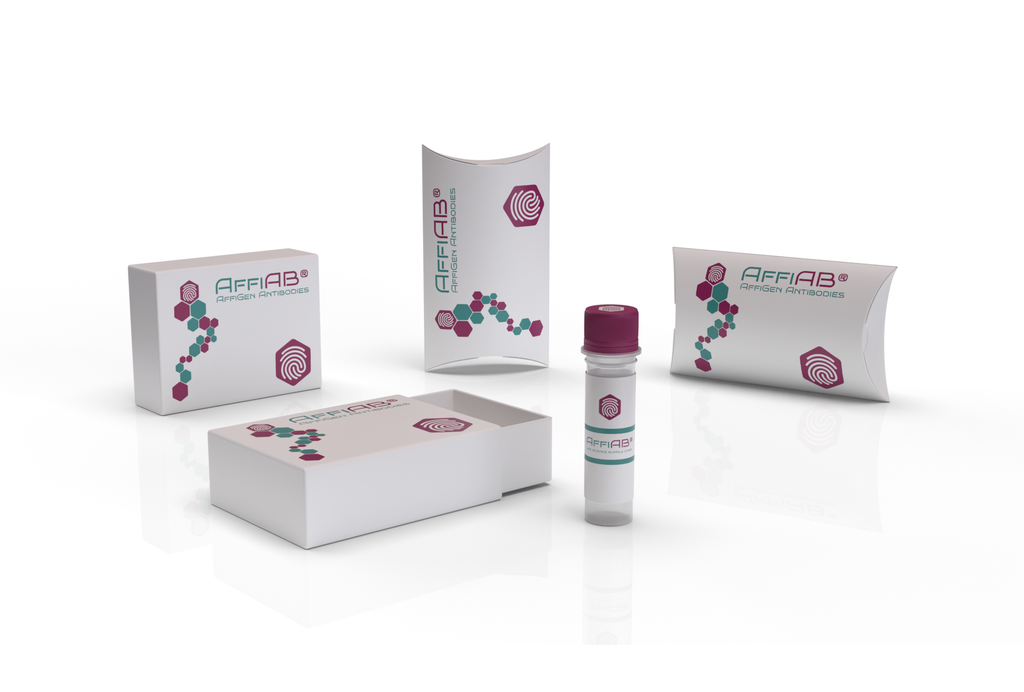AffiAB® Anti-SIRT6 Antibody
The Silent Information Regulator (Sir2) family of genes is a highly conserved group of genes that encode nicotinamide adenine dinucleotide (NAD) -dependent protein deacetylases, also known as class III histone deacetylases. The first discovered and best characterized of this family is Saccharomyces cerevisiae Sir2, which is involved in silencing of mating type loci, telomere maintenance, DNA damage response, and cell aging. SirT6, a mammalian homolog of Sir2, is a nuclear, chromatin-associated protein that promotes the normal maintenance of genome integrity mediated by the base excision repair (BER) pathway. The BER pathway repairs single-stranded DNA lesions that arise spontaneously from endogenous alkylation, oxidation, and deamination events. SirT6 deficient mice show increased sensitivity to DNA-damaging agents, including the alkylating agents MMS and H2O2. In addition, these mice show genome instability with increased frequency of fragmented chromosomes, detached centromeres, and gaps. SirT6 may regulate the BER pathway by deacetylating DNA Polβ or other core components of the pathway.
Antibody type
Rabbit polyclonal Antibody
Uniprot ID
SwissProt: Q8N6T7 Human
Recombinant
NO
Conjugation
Non-conjugated
Host
Rabbit
Isotype
IgG
Clone
N/A
KO/KD
N/A
Species reactivity
Human, Mouse
Tested applications
WB, IHC-P, FC
Predicted species reactivity
N/A
Immunogen
Synthetic peptide within N-terminal human SIRT6.
Storage
Store at +4°C after thawing. Aliquot store at -20°C or -80°C. Avoid repeated freeze / thaw cycles.
Form
Liquid
Storage buffer
1*PBS (pH7.4) , 0.2% BSA, 40% Glycerol. Preservative: 0.05% Sodium Azide.
Concentration
1 mg/mL.
Purity
Immunogen affinity purified.
Signal pathway
N/A
Recommended dilutions
WB: 1:1, 000-1:2, 000
; IHC-P: 1:50-1:200
; FC: 1:50-1:100
Molecular Weight
39kDa
Subcellular location
Nucleus, cytoplasm
Positive control
Mouse brain tissue, mouse thymus tissue
